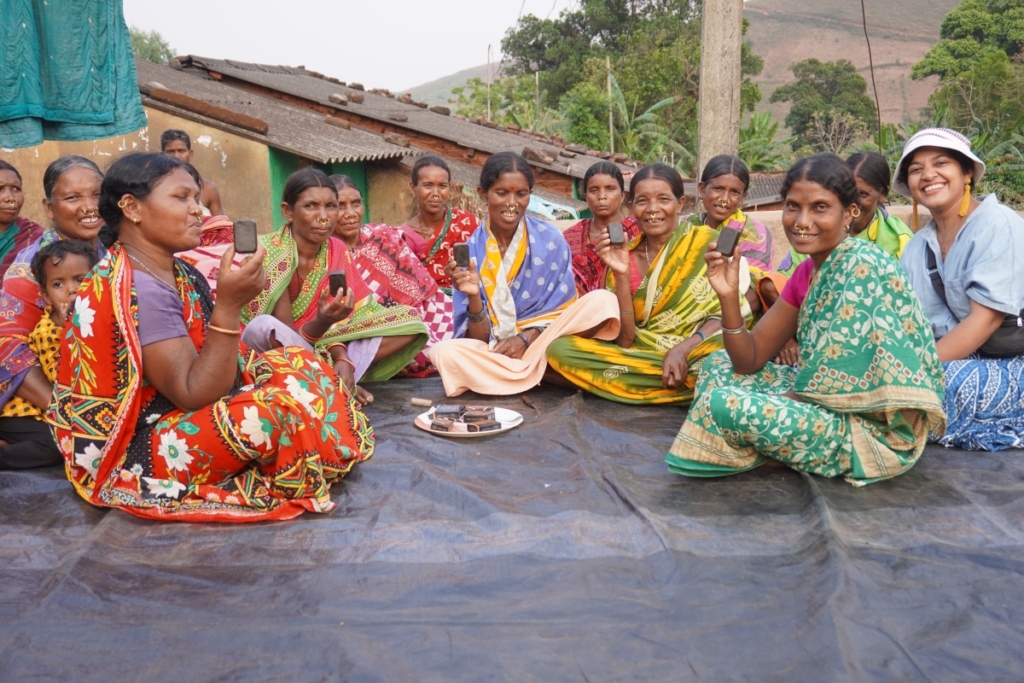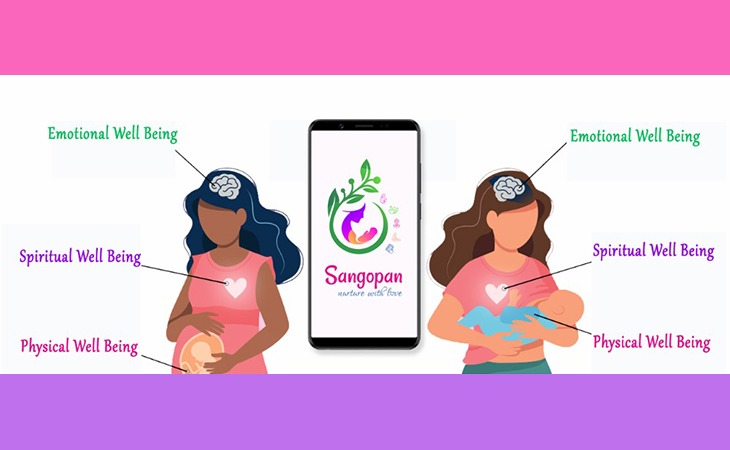Craftpotli, spearheaded by Kavya Saxena, is a unique enterprise focused on empowering Adivasi communities in various parts of India with its core operations in Koraput, Odisha. Born from a passion for rural exploration, Craftpotli transcends traditional handicraft brands, collaborating exclusively with six Adivasi (tribal) communities across three states. With a commitment to sustainability and empowerment, it stands as a beacon of rural development, offering handmade products that carry the essence of India’s tribal artistry.
From Corporate Ladder to Forest Village
Meet Kavya, a woman with a passion for rural exploration and a vision for empowerment. Born in Rajasthan, Kavya’s journey began with studies at Delhi University and a leap into the world of Human Resources. Life was comfortable at IndianOil, a Fortune 500 company, offering diverse opportunities across cities like Bombay, Hyderabad, and Delhi.
Kavya’s career wasn’t confined to HR office work; it delved into the complexities of contract labor, refining her understanding of ground-level challenges. Ten years into the corporate world, she felt the need to step out of the massive setup and explore a smaller, more impactful setting. Resigning from the public sector, Kavya found herself heading brands like Canvas Laugh Club and embracing rural travels funded by a Gurgaon-based life. Before rural crafts gained attention, she wandered through craft-based rural clusters, not for business but to unravel stories
Kavya on Quest
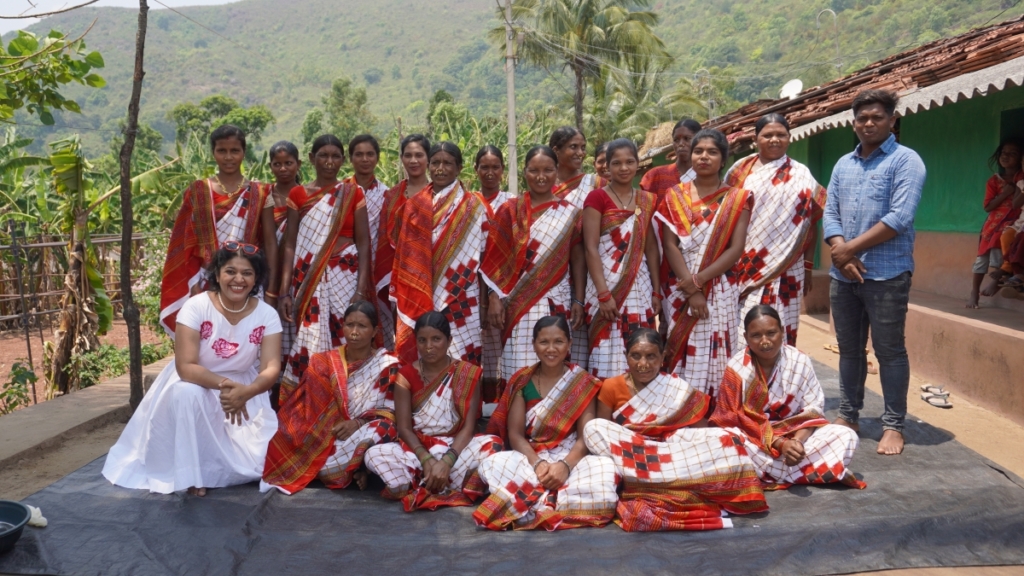
Post-Covid, Kavya’s urge for rural exploration intensified. “Kavya on quest” , an eight-month solo journey, became a turning point. Armed with a Mahindra vehicle, she lived amidst village communities, showcasing India’s arts, crafts, and rural economy through a handmade lens, spotlighting a side to the world that often went unnoticed
The journey garnered attention, leading to collaborations with Amazon for a large-scale Diwali campaign. However, Kavya wasn’t content with exploring familiar clusters like Rajasthan or Kutch. She ventured into the lesser-known territories of Chhattisgarh, Jharkhand, Odisha, and Arunachal, choosing tribal hinterlands over mainstream destinations.
The turning point came when she settled in Odisha’s Koraput, home to tribal communities living as if time stood still. The search for purpose led to the unexpected discovery of excess tribal turmeric production, which had also received a GI Tag for its superior quality. However, it was not being sold outside the geographical region, due to which the commercial and cultural value remained unearthed. This discovery laid the foundation for Craftpotli’s first product—the Turmeric Bar.
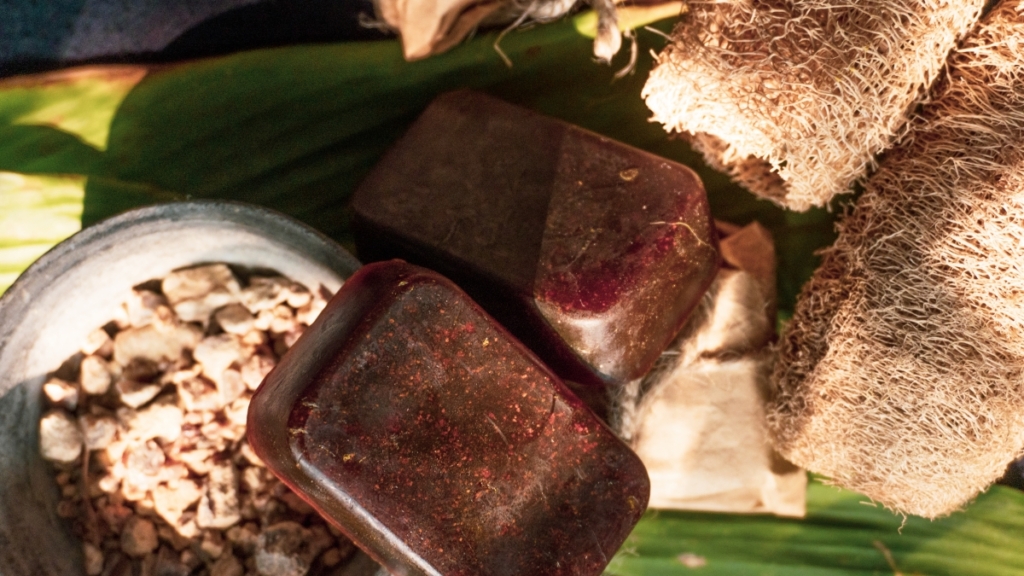
Craftpotli’s success story reached new heights when it became a UN-supported initiative. Kavya’s vision expanded, leading to the registration of Craftpotli as a tribal-focused enterprise. The brand exclusively works with six Adivasi communities across three states.
Craftpotli isn’t just about products; it’s about empowering Adivasi communities. Today, with 62 women and three Adivasi boys managing logistics, packing, and orders, Craftpotli stands as a beacon of sustainable rural development.
Connecting You to Artisan Elegance
Craftpotli’s primary customer segment comprises conscientious consumers seeking a deeper connection with the products they purchase. These individuals value authenticity, sustainability, and the unique narratives that accompany handmade crafts.
Visual storytelling plays a pivotal role in reaching and resonating with this audience. Craftpotli recognizes the power of showcasing the journey behind each product. By revealing the on-ground processes, the brand allows customers to witness the authenticity of craftsmanship, creating a genuine bond between artisans and buyers.
The second pillar of Craftpotli’s strategy is unveiling the meticulous process involved in crafting each product. From packaging innovations to sustainable practices, the brand invites customers to witness the conscious decisions made at every step. This transparency not only underscores the brand’s commitment to sustainability but also establishes a sense of trust and loyalty among its audience.
Kavya’s journey, from a corporate setting to the heart of Adivasi communities, is openly shared. This honesty resonates with a customer base that seeks more than just material possessions; they seek a connection to a meaningful journey.
Lastly, Craftpotli challenges the conventional narrative of ‘support handmade.’ Instead, it champions the idea that handmade crafts support both the artisans and the urban consumers. By emphasizing this mutual relationship, Craftpotli bridges the gap between the creators and consumers, fostering a sense of shared responsibility and empowerment.
In essence, Craftpotli’s customer segment and target market encompass individuals who appreciate the value of handmade crafts beyond their aesthetic appeal. Through visual storytelling, transparency in processes, and an authentic narrative, Craftpotli continues to carve a niche for itself in the hearts of conscious consumers who seek a genuine connection with the products they choose to adorn their lives with as well as understand the impact of their choices on the lives of Adivasi artisans.
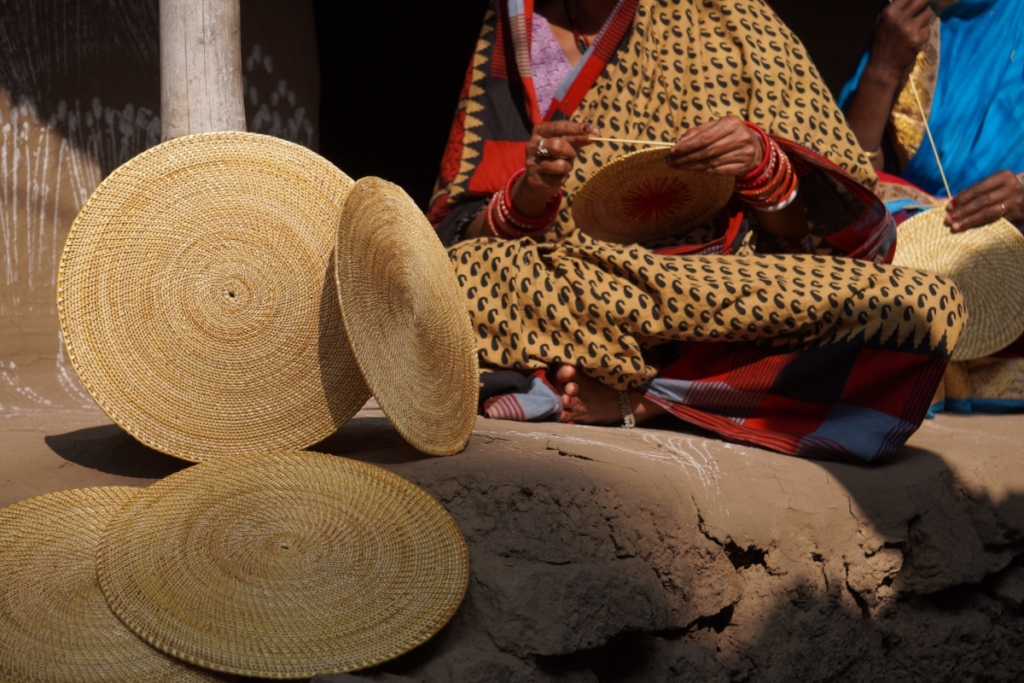
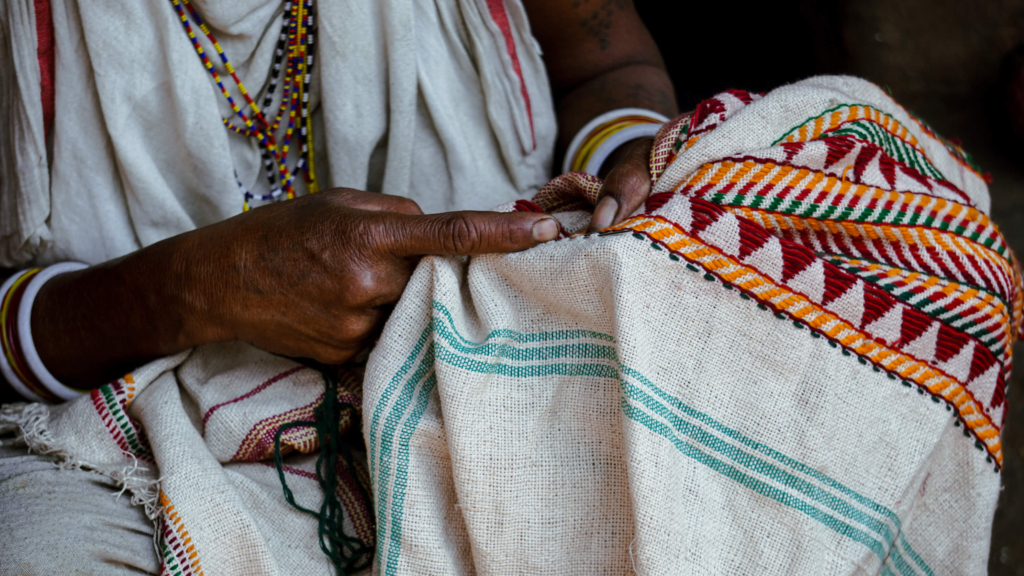
Craftpotli's Strategies Unveiled
Craftpotli’s operational strategy revolves around a remote-first team structure. With core members strategically placed across the country, this not only ensures diverse perspectives but also allows team members to manage their work in alignment with their individual circumstances. This approach addresses the cost concerns prevalent in handmade brands, contributing to a sustainable and resilient working model.
Acknowledging the logistical challenges associated with a dispersed artisan network, Craftpotli has adopted a hyper-localized logistics model. By establishing warehouses in Odisha and Rajasthan, strategically placed to cover 70% of dispatches, the brand has streamlined its packaging processes. This not only reduces costs but also ensures efficient and timely deliveries to customers across varied geographic locations.
Crafting a robust training methodology, Craftpotli leverages video-centric Standard Operating Procedures (SOPs). At the core of Craftpotli’s identity is the belief in the power of storytelling. The brand recognizes that beyond selling products, it shares a narrative. By consistently narrating the journey of each product and the artisans behind them, Craftpotli fosters a genuine connection with its audience. This storytelling strategy transcends a mere transactional relationship, creating a community bound by shared values
Packaging with Purpose, Sealed with Sustainability.
Craftpotli’s prowess extends beyond its products to the realm of packaging. The brand has harnessed the power of organic materials, seamlessly integrating soil leaves, banana husks, hay, and eco-friendly corrugated boxes. Their packaging not only mirrors sustainability but also narrates a story—a story of traditional dye, handmade blocks, and a commitment to leave minimal environmental footprint.
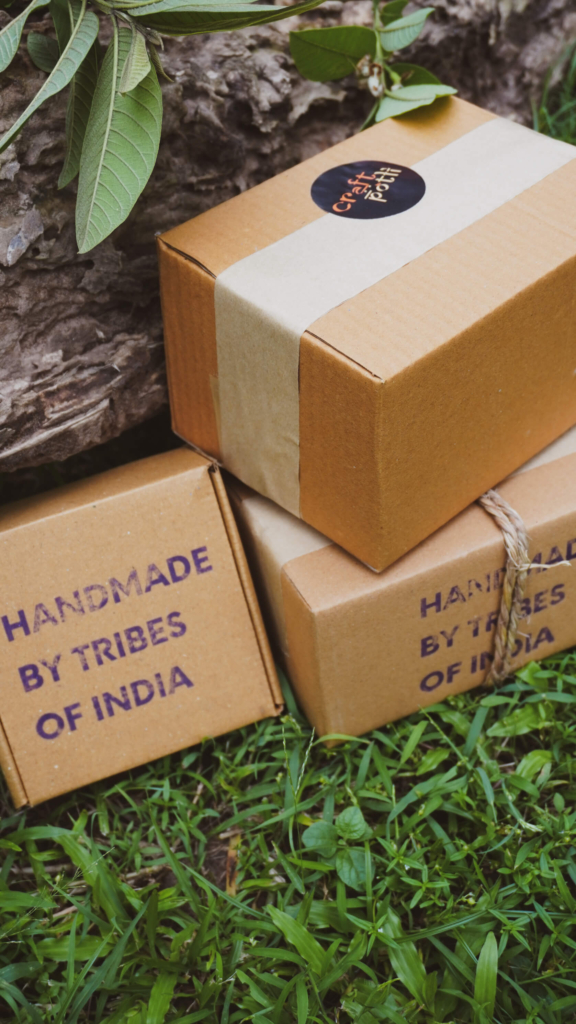
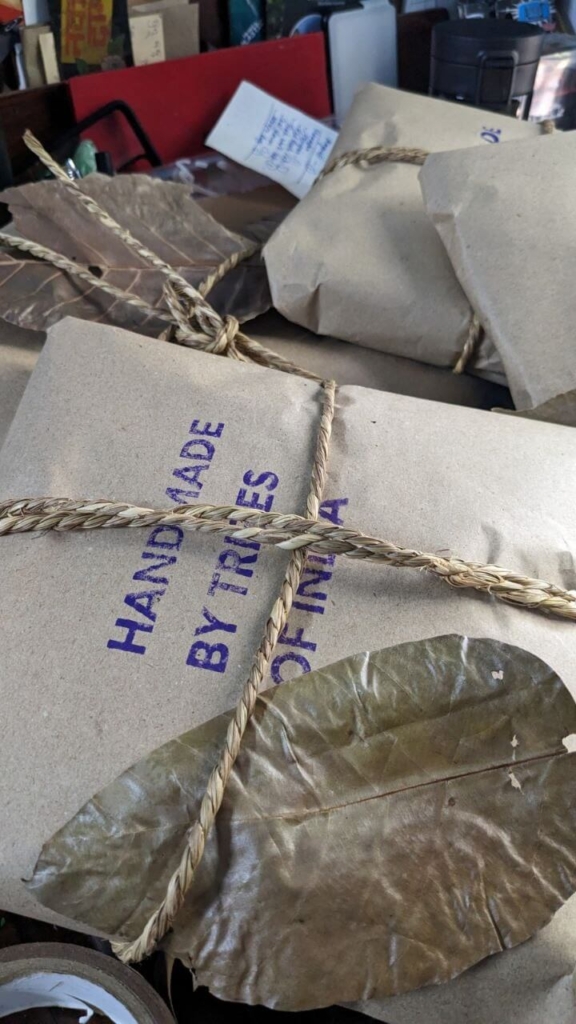
At the heart of Craftpotli’s packaging strategy lies the commitment to minimize its ecological footprint. From the Eastern Ghats, the brand incorporates soil leaves, while banana husks from Madhya Pradesh and Rajasthan find purpose as protective elements. The arid lands of Barmer and Jaisalmer, in Rajasthan, contribute hay, and the stamping of the brand logo involves a dye from footpaths, the same used in crafting Koraput saris.
In a world saturated with plastic and synthetic packaging, Craftpotli stands as a testament to the possibility of creating functional packaging that doesn’t harm the planet. This brand has not only redefined the concept of packaging but has also set an inspiring precedent for others to follow on the path to eco-conscious business practices. It was for this uniqueness, Kavya believes, that the UN approved their craft portal.
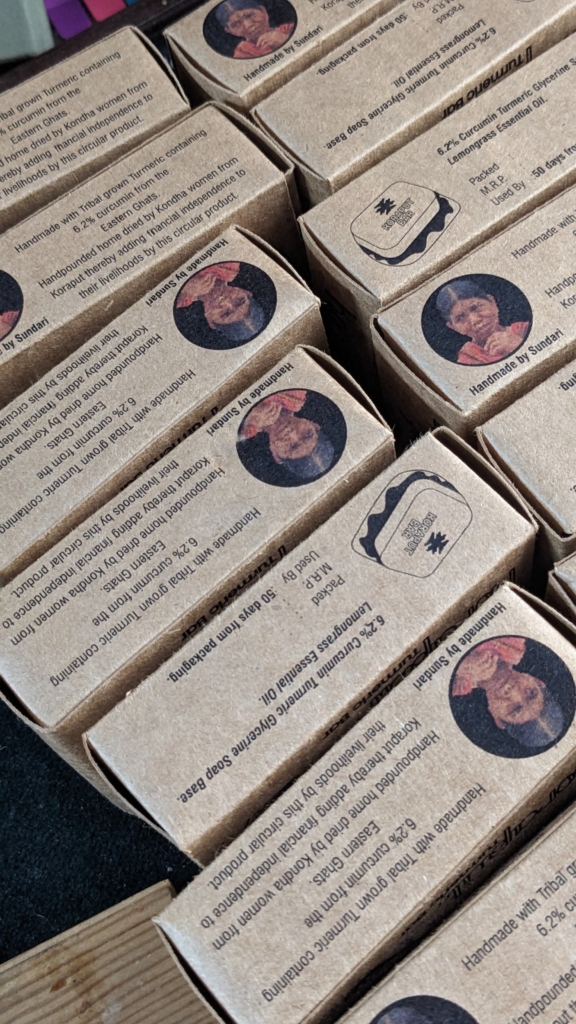

Navigating Challenges, Embracing Learnings
Craftpotli’s journey began with a realization—an understanding of its niche. While initially rooted in a broader handicraft market, the brand pivoted to become a focused Adivasi entity. This clarity empowers Craftpotli to discern its customer base and tailor its offerings with precision, a testament to the brand’s commitment to its ecosystem.
The founder’s decision to immerse in the grassroots, rather than managing operations from a metropolitan hub, emerges as a unique strength. Being present amidst the artisans and communities allows for genuine storytelling. However, this journey is not devoid of challenges, as every small brand encounters hurdles on its path to growth.
While grassroots immersion helps storytelling, it presents a challenge—limited access to mainstream networking opportunities. Craftpotli grapples with the distance from potential collaborators, brand deals, and incubators. The brand is reliant on online platforms, striving to bridge the gap between remote artistry and urban consumers.
Craftpotli’s commitment to preserving diverse craft heritages introduces the challenge of geographical expansion. Collaborating with multiple tribes across states incurs additional costs, not only in production but also in establishing and maintaining relationships. This geographical disadvantage necessitates careful financial considerations for sustained growth.
Small brand owners often grapple with burnout, emphasizing the need for collaboration and shared responsibilities. Craftpotli recognizes this, signaling a shift toward building a team to share the entrepreneurial load.
Kyra Biradar – Kyra is pursuing her Bachelor’s degree in commerce from St Joseph’s College, Bangalore. A highly motivated, organized and dedicated individual, Kyra is passionate about writing and volunteering for education upliftment.
